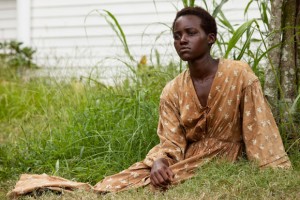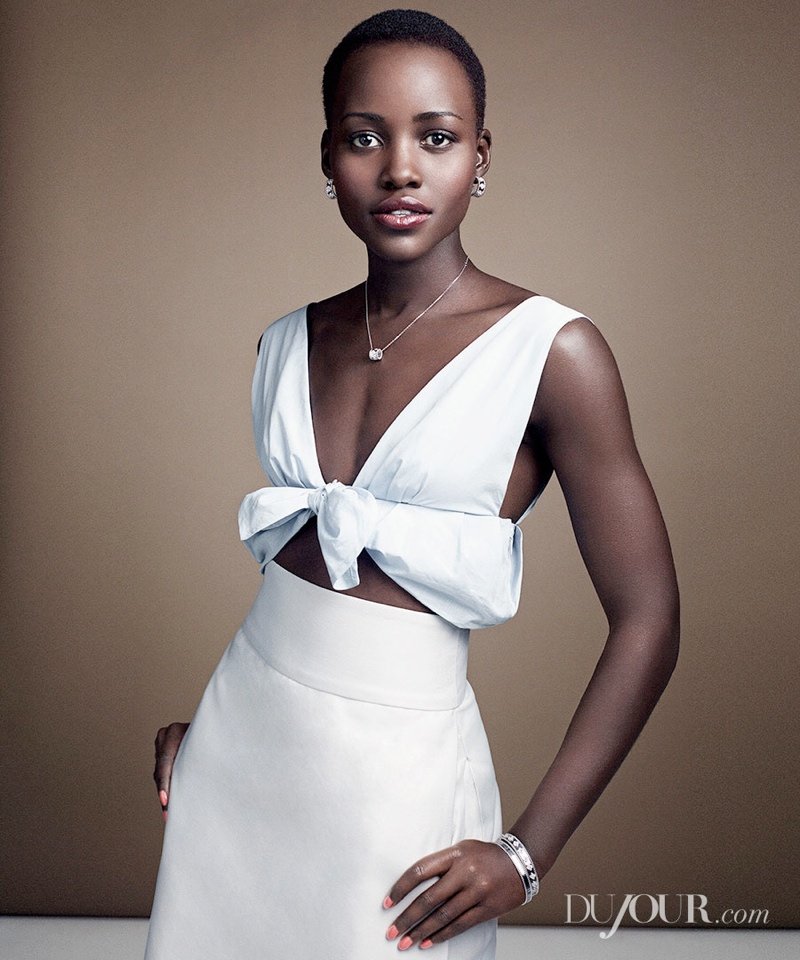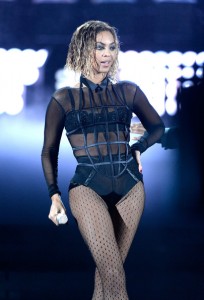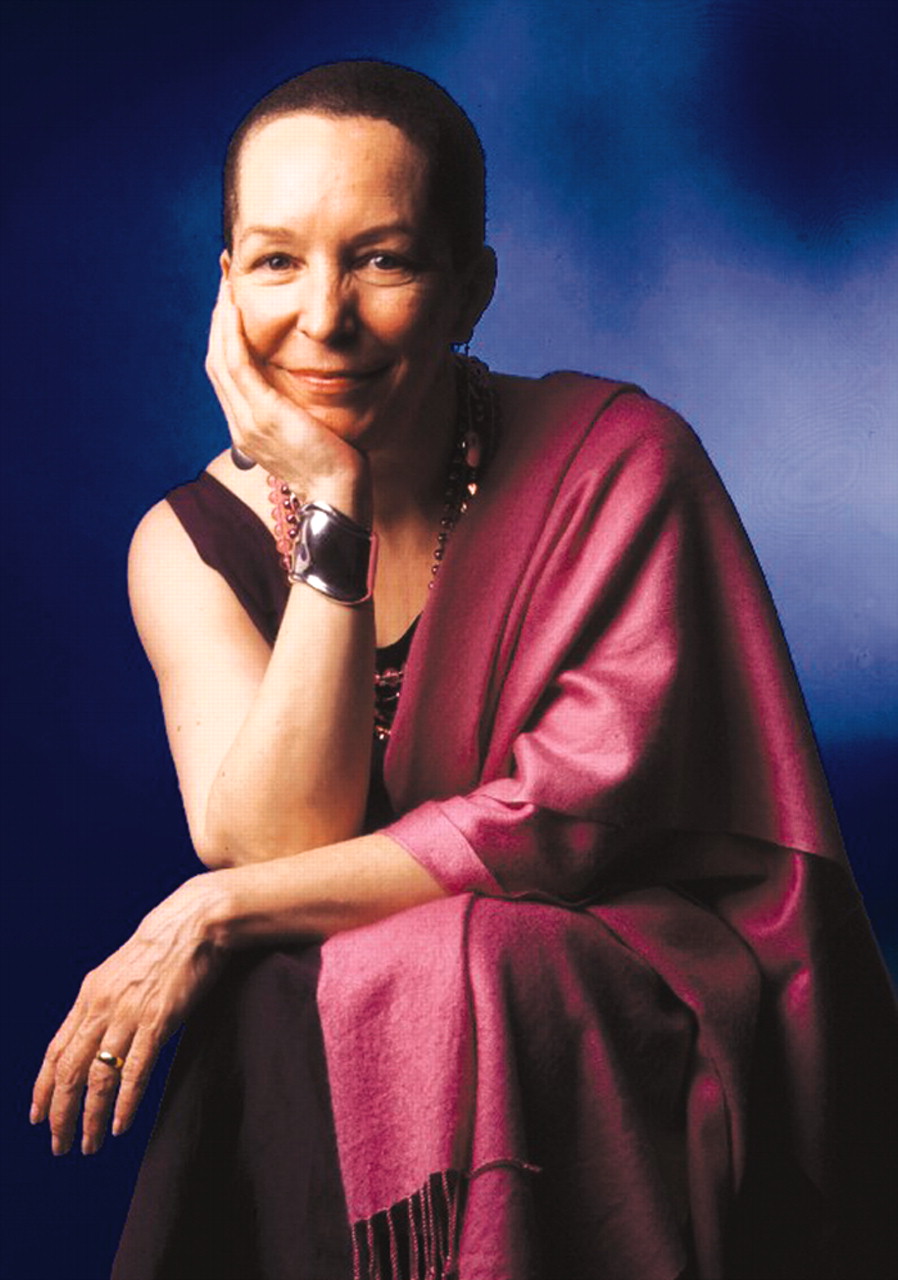Black Female Too-Muchness: Between Hypersexual Norms and Respectable Exceptions
By Janell Hobson
Ten years ago, pop star Janet Jackson received the brunt of public outrage – which culminated in FCC fines – when Justin Timberlake boldly ripped off part of the bodice from her costume, thus exposing her breast before the world during a performance at the Super Bowl’s halftime show. I had written about the incident in Venus in the Dark, in which I had noted: “That Janet’s body – and not Justin’s undressing of her body – would take the brunt of this scandal … reminds us of the difficulty in women’s self-representation, as well as the racial undercurrents that shape the public condemnation and fascination for her duplicated image [i.e. various gifs freeze-framing the “moment” circulated widely on the Internet]” (p. 114).
I think of this historical moment since our public has informally marked this tenth anniversary by condemning yet another black female body inhabiting public space – here I refer to another pop star, Beyoncé, and what some have called an “inappropriate” display of sexuality when she performed her controversial hit song, “Drunk in Love,” with her marital and music partner Jay Z as the opening act at this year’s Grammy Awards. Once again, black female sexuality within the public sphere signals danger, illicitness, vulgarity, and definitely “too-muchness.” Our bodies are “too much.”
This “too-muchness,” however, has both a historical legacy and a contemporary counterpoint, and here is where I turn to Lupita Nyong’o, the ingénue Kenyan actress who has received both critical acclaim for her debut role as Patsey in Steve McQueen’s celebrated 12 Years a Slave and public approval for her dark-skinned beauty, charismatic presence on the awards-season circuit, and impeccable fashion sense on the red carpet.
What would it mean to situate Lupita Nyong’o within historical and popular legacies of black female sexuality here in the U.S.? How does she fit into these scenarios, and how might the praise she has received relate to the condemnation of Beyoncé today and Janet Jackson ten years ago?

Image credit: http://www.newyorker.com/online/blogs/closeread/2013/11/jezebel-and-solomon-why-patsey-is-the-hero-of-12-years-a-slave.html
Nyongo’s movie character Patsey resembles a standard trope in black men’s slave narratives, and Solomon Northup’s story is no different. She is the abject rape victim and literal whipping post. The strength of Nyongo’s performance lies in stamping on such a stock character a depth of pain and humanity that haunts us well after we have finished viewing the film. And yet her characterization is of sheer passivity, so much so that viewers project onto her stoic resistance and emotional suffering. I think of this when comparing her to the other female slaves in the story – Eliza (played by Adepero Oduye) and Mistress Shaw (Alfre Woodard) – both of who admit complicity in their sexualized roles as mistresses to their white slaveowners.
Eliza and Mistress Shaw are fascinatingly more complex in their roles, but it is Patsey that we remember. I want to suggest that we remember Patsey, not so much because Nyong’o’s performance is stronger (perhaps stronger than Oduye’s performance but certainly not stronger than Woodard’s) but because her sexuality is more legible to us. Nineteenth-century stereotypes and narratives have passed down to contemporary audiences two basic tropes of enslaved black female sexuality: the Jezebel and the Rape Victim. Since neither Eliza nor Mistress Shaw fits neatly into the hypersexual and “lascivious” label (as slaveowners and traders often mislabeled enslaved women), they are less recognizable to us, in the way that Patsey the rape victim is. Indeed, the sexual violence visited upon her body positions her within a politics of respectability since she is devoid of sexual desire. And it is this respectability that propels Nyong’o forward from slave movie role to red-carpet fashion queen and gracious award winner and Oscar nominee.
I imagine – had McQueen filmed the rape scene with Edwin Epps (played by Michael Fassbender) in such a way that allowed Patsey to evoke even a quiver of pleasure – her character would have become illegible to us, and perhaps talk of awards and acclaim (not to mention the audience response) may have taken a different turn.
I say this, not to erase the historical reality of slave rape, but considering how both McQueen and Fassbender spoke of this scene in the context of Edwin’s complex “love” for Patsey, I have to ask why Patsey wasn’t afforded the same complexity and agency (and reducing Patsey to “she was a slave” is not a compelling answer). We only have our own projections to place onto Patsey, the object of our pity.
In their work on enslaved women’s histories, Treva B. Lindsey and Jessica Marie Johnson suggest that we place black female sexuality at the center of our methodologies if we are to rediscover fully fleshed out human beings with erotic lives, feelings, and subjectivity. Even then, given the work of feminist historians in repositioning enslaved women beyond the hypersexual label and in exposing the institutional practice of sexual violence in slavery, just showing a quiver of pleasure could set us back 500 years!
Just as Beyoncé’s singing of raunchy acts and taking pleasure in rough sex – replete with violent language serving as sexual metaphor – has set back her feminism (so the argument goes).
In contemporary settings, black women are expected to tread very carefully away from hypersexuality (passed down to us, the stereotypes suggest, from the “bed wench” ways of our predecessors) and toward respectability (where there is only sexual resistance and sexual control). And against this backdrop, we glory in the accolades and positive reception of Lupita Nyong’o, who boldly steps out into the limelight sporting short-cropped hair and donning different colors and styles that show off the flawlessness of her dark skin. Her look seems so new to us, but that is because dark-skinned beauties in the past (Iman, Naomi Campbell, Alek Wek, and Lauryn Hill) have been sidelined for women of color who accommodate their bodies toward white supremacist norms.
It is tempting to think Nyong’o could change the beauty game and the reception of black female bodies. At least she provides healing for some and excitement for others. But in an atmosphere that can recast pop artists like Beyoncé as “whore” because she danced and dressed provocatively with her husband on a live stage, let us be cautious. Sure, one can create dichotomies just in the invocation of these two different public black women. Nyong’o is “classy” (many have described), she speaks eloquently, and she graduated from an Ivy League (and from the same school as fellow acting alumni and mega stars like Meryl Streep, Jodie Foster, and Angela Bassett). None of this is surprising when one considers her middle-class upbringing in Kenya (where her father is a Member of Parliament) – perhaps only a surprise for those who have no knowledge of a middle-class existence on the African continent.
What is problematic is that Nyong’o now inhabits the “exceptional” role. Her dark skin is the exception; her middle-class and Ivy League status is the exception; her flawless fashion sense and beauty are the exception. The hypersexual black woman, the thinking goes, is the norm, while “respectability” is not.
Nyong’o might also occupy that African immigrant space of exceptionalism, as Amy Chua has already suggested in her controversial book The Triple Package, which argued that Nigerian immigrant communities in the U.S. have traits that make them “successful” (as opposed to the traits that make local African American communities “failures,” the unspoken corollary). This latter point has already been verbalized by some who fault the producers of 12 Years a Slave for casting non-U.S. black actors for a quintessentially African American story.
If Nyong’o is a “success” for black women, does that indicate other black women are “failures”? And will this failure always be located in black female sexuality that exists outside of white, heterosexual, and/or middle-class norms?
As we celebrate Lupita Nyong’o (and pop stars like Janet Jackson and Bey – I see no reason to create dichotomies), let us think of the ways that each of these public women try and complicate the tropes of black female representation and what is permissible in depictions of our beauty and sexuality. White supremacist narratives pushback constantly against notions of black female desirability – often cast as “too-muchness.” In this environment, there is no legible black female sexuality, for it is always reduced to a stereotype, a trope.
I have lowered my expectations for Nyong’o to alter the beauty game. She may temporarily allow darker-skinned women and short-cropped and natural-haired women to feel affirmed in the public sphere, but no real change will come about if the structures in which black women operate have not changed to accommodate our differences. I am more concerned that Nyong’o is able to access more roles that would allow her to shine, which can only happen if the entertainment industry, as Shonda Rhimes reminded us recently, would start casting differently and telling different stories – the way McQueen did when he chose to cast Nyong’o in his film (just as he once had to argue vehemently for his choice of Nicole Beharie as the interracial love interest of Michael Fassbender’s character in Shame). Toward that end, different storytellers are needed. The more diverse the stories and images, the more black female sexualities will become legible.
If we continue to reduce all black women in public spaces as either only hypersexual or only respectable, then we needlessly feed into white supremacist and misogynist narratives that cannot recognize black sexual subjectivities and complexities. We will only remain those sexual deviants over there – misrecognized since the era of slavery – with “respectable” and beautiful black women always existing as the “exceptions” to this rule.
____________________________________________________

Janell Hobson is an associate professor in the Department of Women’s, Gender, and Sexuality Studies at the University at Albany. She has authored two books – Body as Evidence: Mediating Race, Globalizing Gender (2012) and Venus in the Dark: Blackness and Beauty in Popular Culture (2005)– and regularly blogs and writes for Ms. Magazine, including the cover story, “Beyonce’s Fierce Feminism,” in the Ms. Spring 2013 issue.






Pingback: Friday’s Listens, Looks, & Reads (2.05.14) | African-American Studies Organization at UAB